Pavel Durov is the founder of the famous social platform Telegram. The blockchain project TON he established is worth tens of billions of dollars (later transferred to the community for management). Telegram has also developed into one of the world's largest social communication apps.
Now, he has been arrested by the French government and faces multiple charges including money laundering and terrorism. A huge shock in the crypto! Related tokens $TON The market value evaporated by US$2.7 billion that day...Why did the technology giant end up like this? Where should Telegram and TON go? Here are the untold stories of his highs and lows.
Childhood Education: Enlightenment of Knowledge
Pavel Durov was born in St. Petersburg, Russia in 1984. His parents were both university professors, and his family environment was full of knowledge.
His father, Valery Durov, is a famous professor of linguistics, and his mother, Albina Durova, is a linguist. Durov's family background provided him with a good educational environment.

When he was four years old, the Durov family moved to Turin, Italy, where his father taught at the local university. Durov spent most of his childhood in Italy, receiving an Italian education and learning multiple languages.
This experience not only enriched his cultural horizons, but also cultivated his sensitivity to different languages and cultures. In 2001, Durov returned to Russia and entered the Experimental School in St. Petersburg, then was admitted to St. Petersburg State University and received a degree in linguistics.
While in college, Durov developed a strong interest in computer programming and began to teach himself programming languages. He also participated in a number of technology projects while in school, demonstrating his extraordinary talent and love for technology. It was these experiences that laid a solid foundation for his subsequent entrepreneurial journey.
Early days: The rise of VKontakte
In 2006, Durov co-founded the social network VKontakte (VK) with his brother Nikolay. The platform quickly became a huge success in Russia and became the main channel for young people to communicate.
VK's design concept allows users to easily share photos, videos and music, attracting a large number of users. Durov has attracted millions of users with his unique management style and emphasis on user privacy.
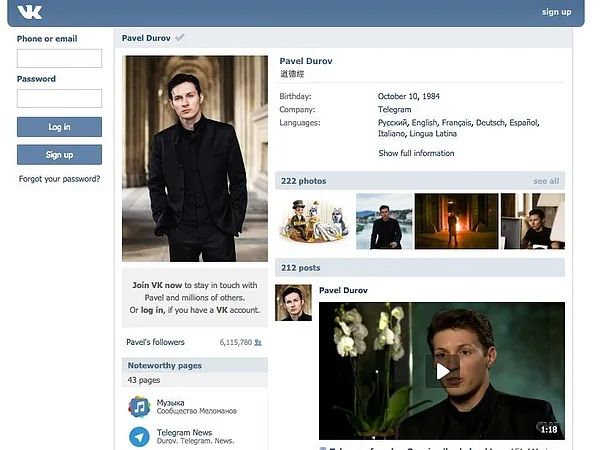
Pavel Durov's profile on VK
In the early stages of VK, Durov adopted many innovative market strategies. For example, he introduced the concept of "wall" into social networks, allowing users to leave messages on friends' pages, increasing interactivity. In addition, he also launched the music sharing function, making VK one of the largest music platforms in Russia.
By 2013, VK's valuation had reached US$3 billion, becoming a representative platform for the Russian Internet. Durov's success attracted widespread media attention, and he was even dubbed "Russia's Mark Zuckerberg."
Russian government interference
However, with the rapid development of VK, the relationship between Durov and the Russian government gradually became tense. When the Ukraine crisis broke out in 2014, Durov refused to provide private data of Ukrainian users to Russian security agencies, further intensifying the conflict with the government.
The Russian government has become increasingly strict on social media supervision, requiring VK to delete some pages involving politically sensitive content. Durov firmly rejected this request, saying: "I would rather close VK than compromise with the government."
This persistence won him a reputation among the public, but also deepened his conflicts with the government. Durov was forced to resign as CEO of VK in April 2014 and sold his shares in the company that same year.
His departure marked a complete break with VK. Durov said goodbye with "Goodbye and thanks for all the fish" when leaving, quoting Douglas Adams' classic work and expressing his yearning for freedom.
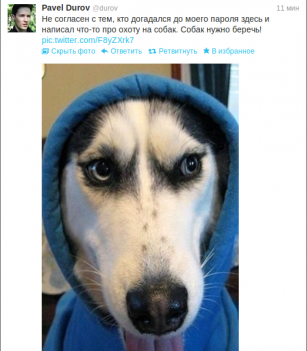
After leaving VK, Durov chose to live in exile. He acquired the citizenship of Saint Kitts and Nevis by investing US$250,000 and began a life of traveling around the world.
During this time, he has lived in Europe, the United States and the United Arab Emirates, gaining extensive international experience.
Founding Telegram: The pursuit of privacy and security
In 2013, Durov co-founded the instant messaging application Telegram with his brother Nikolai, aiming to provide users with a safe and private communication platform.
The launch of Telegram represents Durov's second entrepreneurial success, and it has quickly attracted users around the world with its strong privacy protection and security, especially in areas with high demand for privacy.
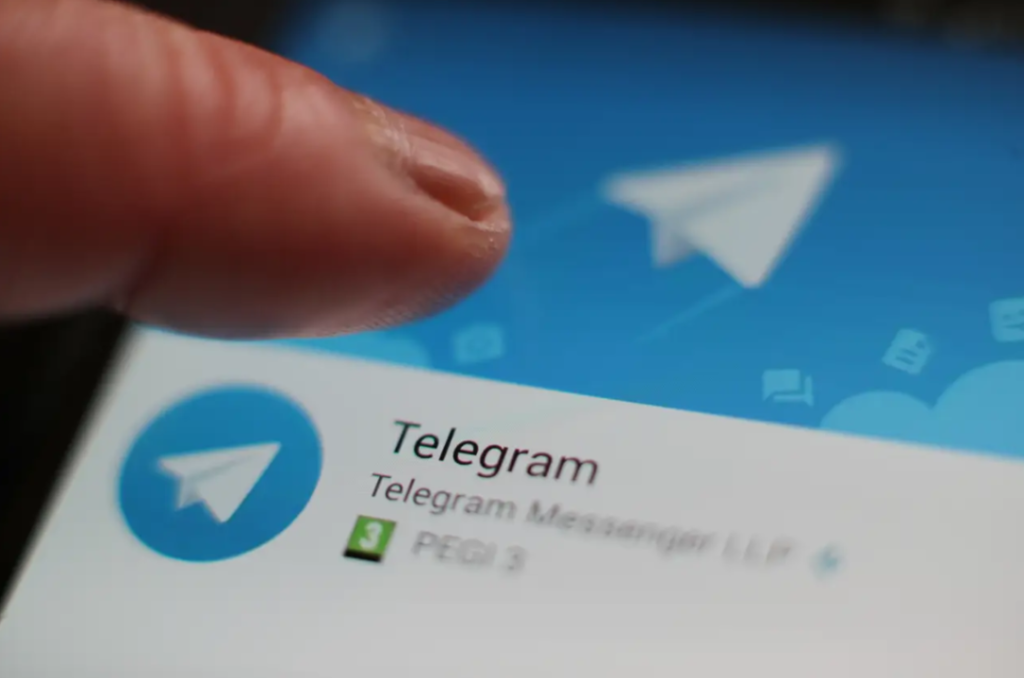
Telegram is designed to allow users to communicate freely in a censorship-free environment. Durov has introduced end-to-end encryption technology in the application to ensure that user information will not be stolen or monitored by third parties. (Note in moving area: Encrypted calls need to be turned on manually)
In addition, Telegram also allows users to establish anonymous chat and self-destruct message functions, further enhancing user privacy protection. In 2018, the Russian government blocked Telegram because Durov refused to provide user information. The ban was not lifted until 2020.
Despite the difficulties, Telegram has continued to expand its suite globally and become one of the most popular messaging apps.
According to statistics, the number of active Telegram users worldwide exceeded 800 million in July 2023, and more than 2.5 million new users registered for Telegram every day, making it the third largest instant messaging application in the world.
From Telegram to TON: The pursuit of a decentralized Internet
The story of TON (The Open Network) is full of innovation and challenges.
TON was originally developed by the Telegram team in 2018 to build a high-performance blockchain platform that supports decentralized applications and digital assets. Its design concept is to provide a fast, secure and user-friendly blockchain Infrastructure that makes it easy for everyone to use.
The launch of the project was accompanied by an ICO (Initial Coin Offering), which successfully raised more than $1.7 billion in funds and attracted the attention of global investors.

However, TON’s road has not been smooth. In 2019, the U.S. Securities and Exchange Commission (SEC) filed a lawsuit against Telegram, arguing that its ICO constituted the sale of unregistered securities.
This legal challenge forced Durov to announce a pause in TON development in 2020, disappointing many investors. Despite this, TON's original code attracted the attention of developers around the world, and the project did not die.
With Durov's support, the TON community gradually grew, and developers began to continue advancing the project based on the original code.
In 2020, control of TON was handed over to the community, and developers actively discussed and collaborated on Telegram, promoting the restart of the TON ecosystem.
With the efforts of the community, TON has gradually developed a series of ecological projects, including TON Wallet, TON DNS, etc., to support users in cryptocurrency transactions, domain name registration and other services. The TON ecosystem began to take shape, attracting more and more users and developers to participate.
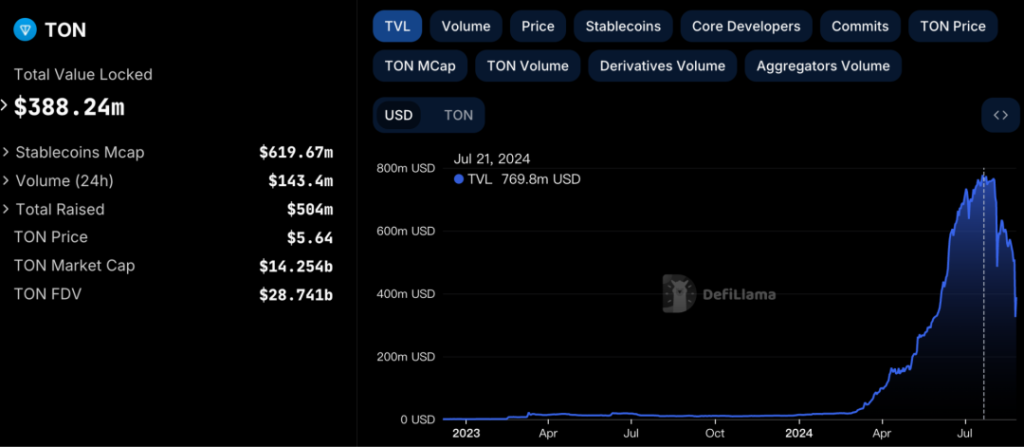
In 2024, the TON ecosystem completely exploded, with the total value locked (TVL) exceeding US$600 million, an increase of 1,000 times since 2024. The establishment of the foundation further promoted the development of the project and provided a number of services such as developer support, user education, and brand cooperation.
In the future, TON plans to launch gas-free transactions, official cross-chain bridges, and new-generation wallets to further enhance its competitiveness. With Telegram's huge user base, TON is expected to make breakthroughs in fields such as decentralized finance (DeFi) and non-fungible tokens (NFT).
Recent events: Arrest controversy
However, Durov's road to success has not been smooth sailing. He was recently arrested in France on suspicion of spreading illegal content on Telegram. French authorities said the arrests were due to a lack of supervision on the platform, which led to a large number of criminal activities including the spread of false information and hate speech. The incident attracted widespread media attention around the world. Many have expressed concerns about Durov's future, believing this could be a crackdown on his stance on privacy protection.
After the news of the arrest came out, the TON token Toncoin once plummeted by more than 20% and its market value evaporated by US$2.7 billion.
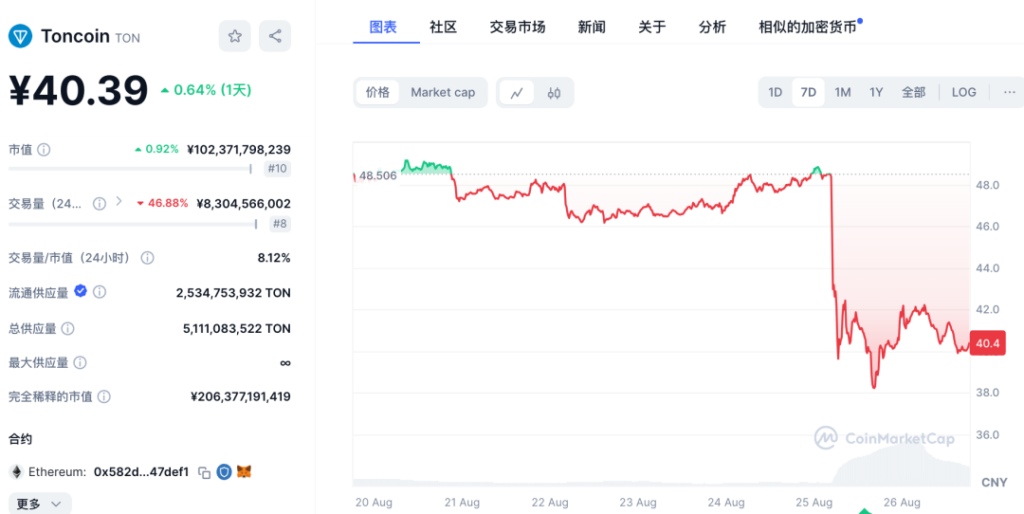
Durov's supporters began to speak out, considering him a hero who fought to protect free speech and privacy rights. They called on the international community to pay attention to Durov's situation and hoped that he could be released as soon as possible. Despite the legal challenges, Durov remains steadfast in his belief that protecting user privacy and free speech is his life's mission.
Conclusion
The story of Pavel Durov is one of innovation, freedom and persistence. He has grown from a young entrepreneur to a fighter for privacy and freedom, experiencing both brilliance and challenges. How Durov’s story will develop in the future deserves our continued attention.
As he firmly believes, true freedom and privacy are rights that everyone should pursue.






